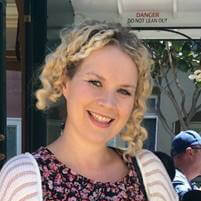What to do When your School has Decided Against Permanent Exclusions

Choosing not to exclude persistently disruptive students is never an easy option, says Kylie Ingram – but it’s often the most rewarding one…

- by Kylie Ingram

The rise in the number of school exclusions is alarming and the effect a pupil’s misbehaviour can have on a class, individual pupils and teachers alike is of huge concern. However, when acted upon correctly, it doesn’t have to be such a negative tale.
I am thinking about Ashmal (Name has been changed), a 14-year-old pupil at Lyng Hall Academy, whom I still teach today.
Within his first year of joining the school in Year 7, Ashmal had 389 negative codes (behaviour technique that begins with a positive).
He was hugely disruptive and on the brink of permanent exclusion – but together with my colleagues, I saw promise in Ashmal, and we didn’t want to give up on him.
Ashmal was a hard pupil to understand, he was so angry and he himself didn’t know what to do.
It was such a difficult situation, we needed to think about our other students, but we knew that if we excluded him – which would have been the easiest option – his chances of succeeding in life were slim.
Instead we decided to develop an action plan. This definitely wasn’t an easy journey but it turned out to be an extremely rewarding one.
All together
We assigned Ashmal to a keyworker, who got to know not only Ashmal but also his family. The keyworker took the time to understand what had happened in his life for him to be so angry and suggested Ashmal went on an anger management programme to think about kindness and positivity.
Meanwhile, as a school we looked into other services that could help Ashmal. We worked with social care, primary mental health and Coventry MIND and took advice from CAMHS who shared their strategies rather than Ashmal needing to join a long waiting list.
As part of the school-wide commitment to Achievement for All’s Achieving Schools programme, we worked closely with Ashmal’s parents, which was integral to developing a cohesive programme of support tailored to Ashmal’s needs.
In addition, we secured a place for Ashmal on the Mentors in Violence Prevention Programme, where an older student mentored him.
It was a pleasure watching Ashmal improve, but during this time, we as teachers needed guidance too.
Trending
In addition to the dedicated coaching we received from Achievement for All, we worked with the Boomerang programme, which guides teachers on how to manage mental health, build resilience and self-esteem in students.
COMPASS, which works around protective and risky behaviours, also provided us with much needed support, and educational psychologists provided training on emotion coaching for all staff.
This was undoubtedly beneficial to Ashmal’s progress, but also ensured we could help other pupils through developing our own knowledge and skills.
Proud achievement
Over time, Ashmal came on leaps and bounds. Regular attendance and behaviour meetings, support at home and constantly listening to Ashmal, as well as focusing on positivity and engagement in lessons, allowed him to turn himself around.
Ashmal openly says that he is proud of what he has achieved – and so he should be. He is now in the top set for English and history and in the second set for all other subjects.
He even finds himself a mentor to other students on the Mentors in Violence Prevention Programme, going full circle, helping young pupils just as he was once helped.
And Ashmal isn’t a one off at Lyng Hall; we put as much effort in for all our students who require the support they need to achieve.
I am so proud to say that I work for a school which is a community and committed to all its young people, not just in term time but holidays too. It has shown me first hand that by working together, we can make a difference.
Kylie Ingram is assistant headteacher inclusion at Lyng Hall School, which works with award-winning education charity, Achievement for All.










